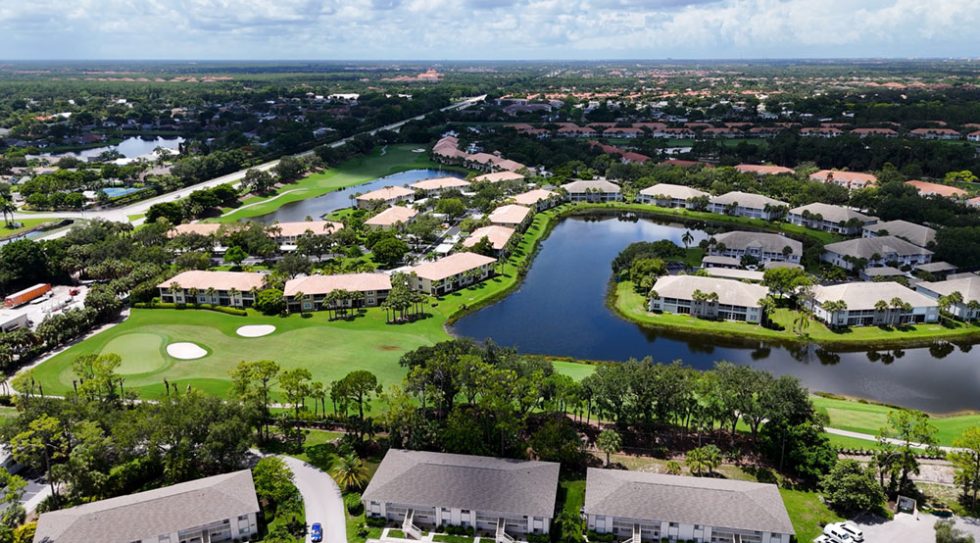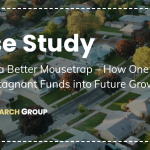Community Associations, including homeowners’ associations (HOAs), condominium associations, timeshares, and cooperative boards, play a critical role in maintaining and enhancing the living environment for owners and residents. These organizations are responsible for managing shared spaces, enforcing community rules, and ensuring the well-being of their members. Investing in the community infrastructure, amenities, and landscaping is essential to increasing the value for all stakeholders—homeowners, property managers, and investors—over time. This article will explore the significance of these investments, the role of dues and maintenance fees, and how a conservative investment strategy can assure the continuation and growth of these community assets.
Enhancing Community Value Through Investment
Investing in a community goes beyond merely maintaining the status quo. It involves making strategic decisions to improve the quality of life for residents and increasing property values. Several key areas where investment can make a significant difference include:
- Infrastructure Improvements: Upgrading roads, sidewalks, lighting, and other essential infrastructure elements that make up most community associations today, can improve safety, accessibility, longevity, and the overall aesthetics of the community. These enhancements and a well formulated plan to maintain them can attract potential buyers and increase property values, benefiting homeowners and investors alike.
- Amenities: Modern amenities such as swimming pools, fitness centers, clubhouses, and parks contribute to the desirability of a community. These facilities not only provide recreational opportunities for residents but also serve as selling points that can distinguish a well-managed community from others in the area.
- Landscaping and Aesthetics: Well-maintained green spaces, gardens, and common areas create a visually appealing environment that fosters pride among residents. Investing in landscaping, regular maintenance, and upgrades ensures that the community looks its best year-round, enhancing curb appeal and property values.
- Technology Upgrades: In today’s digital age, technology plays a crucial role in community living. Investing in high-speed internet infrastructure, security systems, and smart home technologies can improve the quality of life for residents and help attract tech-savvy buyers.
The Role of Dues and Maintenance Fees
Dues and maintenance fees are the lifeblood of Community Associations. These funds are used to cover the costs of maintaining common areas, providing essential services, and making necessary repairs. While these fees may sometimes be viewed as burdensome by residents, they are essential for the long-term sustainability and growth of the community.
- Funding Essential Services: Dues and maintenance fees fund services such as professional management, trash collection, landscaping, snow removal, and security. Without these services, the quality of life in the community would suffer, leading to decreased property values and resident satisfaction.
- Building Firm Financial Foundations – Reserve Funds: A portion of the fees collected should be allocated to reserve funds. These funds are set aside for future capital projects and unexpected repairs. A professionally prepared Reserve Study forms the basis for long term reserves and well-funded reserves ensures that the community can manage emergencies and undertake significant improvements without resorting to special assessments or loans.
- Transparency and Communication: It is crucial for Community Associations to maintain transparency with residents regarding how fees are being collected and utilized. Regular communication and financial reporting can help build trust and understanding among homeowners, reducing resistance to fee increases when necessary.
- Conservative Investment Strategies for Sustained Growth: Managing the financial resources of a Community Association requires a careful balance between immediate needs and long-term goals. A conservative investment strategy and a formal investment policy can help ensure the continuation and growth of community assets over time. Several proven strategies include:
“Needs-Based Analysis”: Adopting a “Needs-Based Analysis” approach to investment, similar to the process developed by The March Group, involves evaluating the specific needs of the community, incorporating the Reserve Study and prioritizing investments accordingly. This approach ensures that resources are allocated to areas that will have the most significant impact on residents and help to maintain and enhance property values.
Structured Asset Management: Implementing a Structured Asset Management Systems process can help Community Associations manage their financial resources more effectively. This process driven approach involves tracking assets, forecasting future needs, and planning for long-term maintenance, repairs, and replacements. By having a clear plan in place, associations can avoid costly surprises and ensure that funds are available when needed.
Conservative Financial Management: While it may be tempting for some board members to pursue high-risk, high-reward investments, Community Associations should prioritize stability and security. Conservative investment options, such as Treasury bills, notes and bonds, certificates of deposit (CDs), and low-risk vehicles, can provide steady returns while minimizing risk. This approach ensures that reserve funds grow over time, providing a solid financial foundation for the community. - The Long-Term Benefits of Investing in Community: Investing in the community, infrastructure, amenities, and landscaping yields numerous long-term benefits for all stakeholders:
Increased Property Values: Well-maintained and attractive communities command higher property values. Homeowners benefit from increased equity in their homes, and the community becomes more appealing to potential buyers.
Enhanced Quality of Life: Residents enjoy a higher quality of life in a community that is safe, well-maintained, and equipped with modern amenities. This satisfaction leads to higher retention rates and a stronger sense of community.
Financial Stability: A well-managed Community Association with adequate reserve funds and a conservative investment strategy can weather economic downturns and unexpected expenses. This stability can provide a more secure feeling for residents and ensures the long-term viability of the community.
Positive Reputation: Communities that invest in their future develop a positive reputation, attracting new residents and business relationships. A compelling reputation can lead to increased demand for homes in the area, further driving up property values.
Conclusion
Investing in Community Associations is not just about maintaining the status quo; it is about creating a thriving, sustainable environment where residents can live, work, and play. By investing in infrastructure, amenities, and landscaping, and adopting a conservative financial strategy, Community Associations can increase the value for all stakeholders over time. Dues and maintenance fees are essential to funding these investments, and transparent communication with residents can help build support for these necessary contributions. Ultimately, a commitment to investing in the community ensures a firm financial foundation and a bright and prosperous future for all who call it home.
Helping You Build a Firm Financial Foundation For Your Future
Nico F. March is the Managing Director for The March Group, LLC. He has worked with Community Associations since 1974 and has served on several Boards, including the Board of Directors for the Community Association Institute (CAI), San Diego Chapter. His team has specialized in Corporate Cash and Association Financial Management since 1982 and has assisted over 1000 Associations, Nonprofits and Timeshares invest over $4 Billion in reserve, operating and reconstruction funds. Nico and his team work out of their San Diego and Wyoming offices and may be reached at 888.811.6501 or email [email protected] for further information and consultations.
The March Group is not a tax or legal advisor. We will be glad to work with your professional CPA and Attorney to help you with your financial goals. Neither the information contained herein nor any opinion expressed shall be construed to constitute an offer to sell or a solicitation to buy any securities mentioned herein. Nico March is a registered representative with, and securities are offered through LPL Financial, Member FINRA/SIPC.
The opinions voiced in this material are for general information only and are not intended to provide specific advice or recommendations for any individual or organization.
LPL App642295-1



